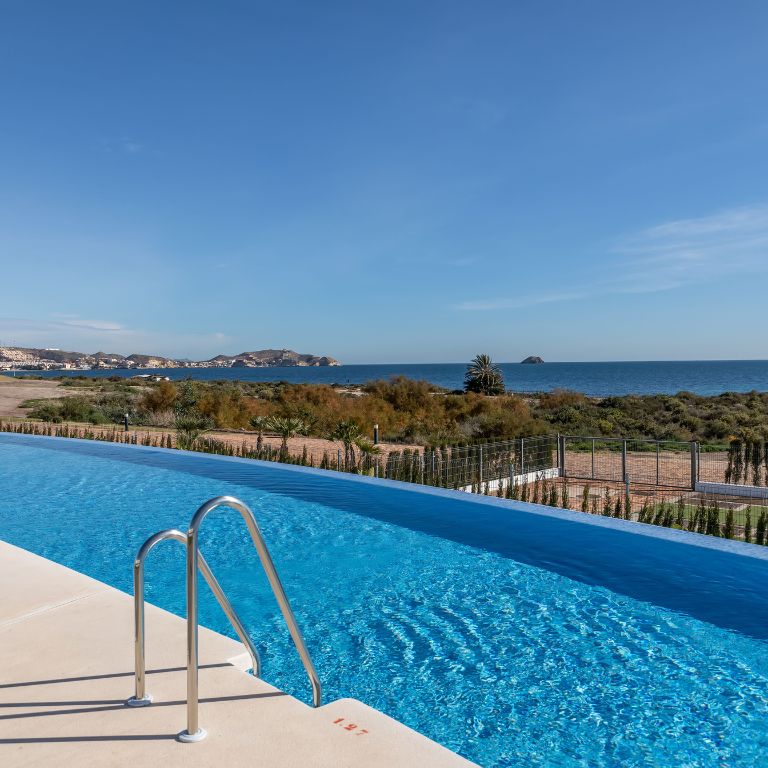


Lecture time: 2 minutes
Summer is here and it's very important to be aware of the rules of the communal areas of the residential complex in which you live. Knowing what to do and what not to do in these areas, as well as in communal swimming pools, is essential for proper use while swimming. Let's take a closer look at the rules for communal swimming pools this summer!
Being aware of the rules of the communal swimming pool in your residential complex is essential in order to live peacefully and harmoniously with your neighbours. We all like to take a dip in the communal swimming pool, especially in the hot summer temperatures. Let’s take a look at some generic communal swimming pool rules that can be applied in your residential complex.
First and foremost, it should be borne in mind that the regulations for communal swimming pools vary depending on each owners’ association, but they are governed by the Horizontal Property Law. The latter states that “in order to regulate the details of coexistence and the appropriate use of the services and communal facilities, and within the limits established by law and the bylaws, the owners may jointly establish internal rules that shall also be binding on all owners until they are modified in the manner established for making agreements concerning administration.”
The common basic rules for swimming pools are based on safety, hygiene and maintenance. Furthermore, both technical and health aspects must be addressed.
Although it is not compulsory, it is highly recommended for owners associations’ to take out insurance for swimming pools. Likewise, swimming pool maintenance throughout the year is essential in order to ensure that the swimming pool is in optimum condition.
The swimming pool must be no more than 3 metres deep. The communal swimming pool rules must be posted on a sign indicating the swimming pool’s general rules of use and hygiene; the sign must be placed both inside and outside the communal areas.
Communal swimming pool opening and closing times must be established. The rest hours established by the residents must be respected, as swimming in the early hours of the morning, at siesta time or late at night are not appropriate and would not respect their rest.
As to whether or not it is compulsory to have lifeguards at the swimming pool, the answer is that it depends on the rules of each autonomous community, the size and depth of the swimming pool and the number of residents. However, if the swimming pool is larger than 50 metres, two or more lifeguards are required. Lifeguards will also be required or not required depending on whether there are 30 or more dwellings in the residential complex. Lifeguards must be trained and certified.
As a general rule, showering is compulsory before and after swimming in the swimming pool. And, if the swimming pool is covered, it is usually compulsory to wear a cap to be able to swim in it. Animals are not permitted.
Furthermore, the capacity limit must be complied with taking into account the total number of residents, as well as the limit of people invited by each resident. Clothing rules must be observed in the swimming pool.
There may be penalties for not complying with the regulations in force in communal swimming pools.
The regulation of chemical substances to ensure healthy water is essential in order to be able to use the swimming pool without any problems. The water must be in good condition for swimming in communal pools.